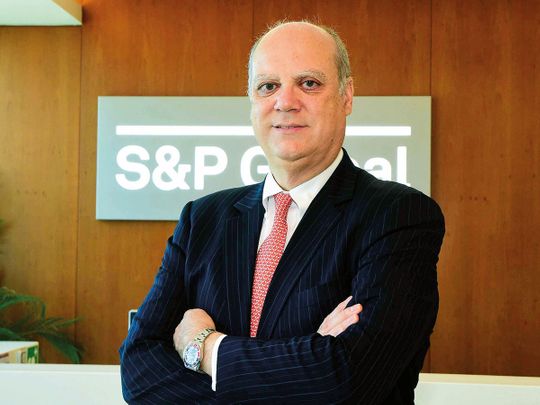
Dubai:
Against a popular perception, active managers underperform in all seasons even in times of volatility, according to Alex Matturri, chief executive officer at S&P Dow Jones Indices.
A study conducted by the index provider found out that active managers tend to underperform their benchmarks over a 1-15 year horizon, additionally the index provider said longer the time horizon, the more active funds underperform. Over the 15 year investment horizon, 92.43 per cent of the large cap managers, 95 per cent of mid-cap managers, and 97.70 per cent of small-cap managers failed to outperform on a relative basis.
“People have always said that in market turmoil, active managers should do well, but our research does not show that ...,” Alex Matturri, chief executive officer at S&P Dow Jones Indices told Gulf News from their Dubai office.
Over a longer period of time we see fairly consistent underperformance by active managers globally. It’s just hard for an average investor to be able to consistently find active managers that outperform.
“Over a longer period of time we see fairly consistent underperformance by active managers globally. It’s just hard for an average investor to be able to consistently find active managers that outperform,” Matturri said.
Among the passive investment themes, weighted indices, smart beta and factor based indexing has grown in popularity, Matturri said. As far as the ESG themes, which are most popular in Europe, are concerned, they are still in the domain of institutional players. “Product launches based on ESG indices have been slow, but it is starting to happen,” he added.
For S&P Dow Jones Indices, most of its revenues were driven by inflow into Exchange Traded Funds.
“At the end of the year, as markets became more volatile and asset values dropped, trading volumes started to pick up, so there was a natural balance between revenue driven from trading fees versus that driven from assets under management of products linked to our indices,” Matturri said.
Asia is the fastest growing market for the index provider and most of the growth is coming in from Japan and Australia, two of the bigger ETF markets in the region.
Going ahead, the index provider wants to expand its product categories.
“Our strategy has been to apply some of these themes such as factor-based investing across the themes, and across the globe. So they have been launched in the US, Middle East, and other markets and we see that continuing,” he added.










